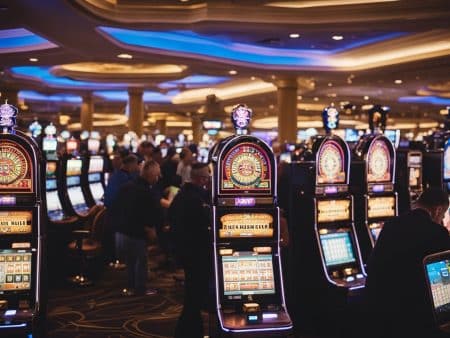The New York Senate Racing, Gaming, and Wagering Committee has unanimously passed Senate Bill 5935, which aims to prohibit online sweepstakes games in the state. The legislation has now advanced to the full Senate floor for further consideration, marking a significant step in New York’s efforts to regulate online gaming activities. If passed into law, the bill would ban online sweepstakes casinos and establish penalties for violations, while also providing enforcement mechanisms for these new provisions.
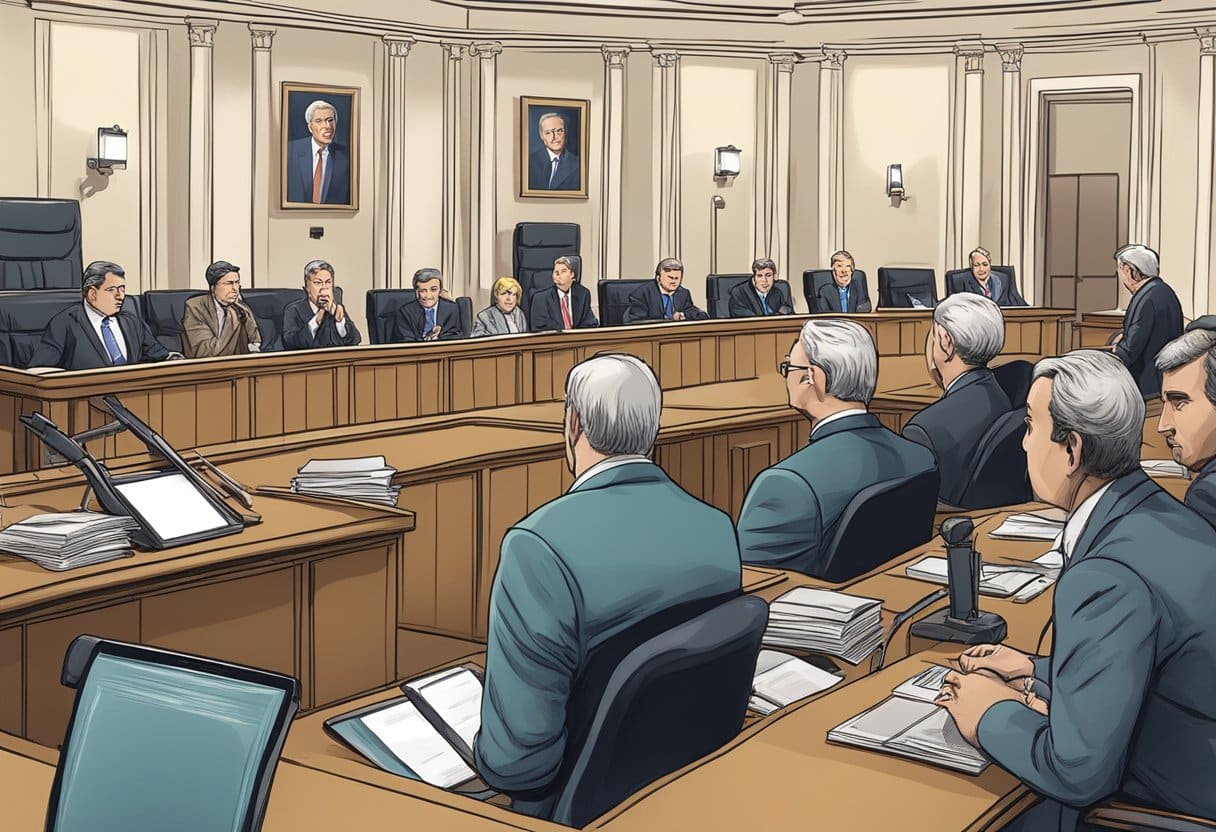
This legislative move comes amid growing concerns about the proliferation of sweepstakes gaming platforms that operate in regulatory gray areas. The bill specifically targets online sweepstakes games and would also impact suppliers who provide services to these operations. The unanimous committee approval signals strong support among lawmakers for cracking down on what some consider to be illegal gambling markets operating under the guise of sweepstakes.
The advancement of SB 5935 represents the latest development in New York’s ongoing efforts to define clear boundaries for legal gaming operations in the state. As the bill moves to the Senate floor, stakeholders in the gaming industry, particularly those involved in sweepstakes-style platforms, will be watching closely to see how this legislation may reshape the online gaming landscape in New York.
Overview of the Proposed Legislation
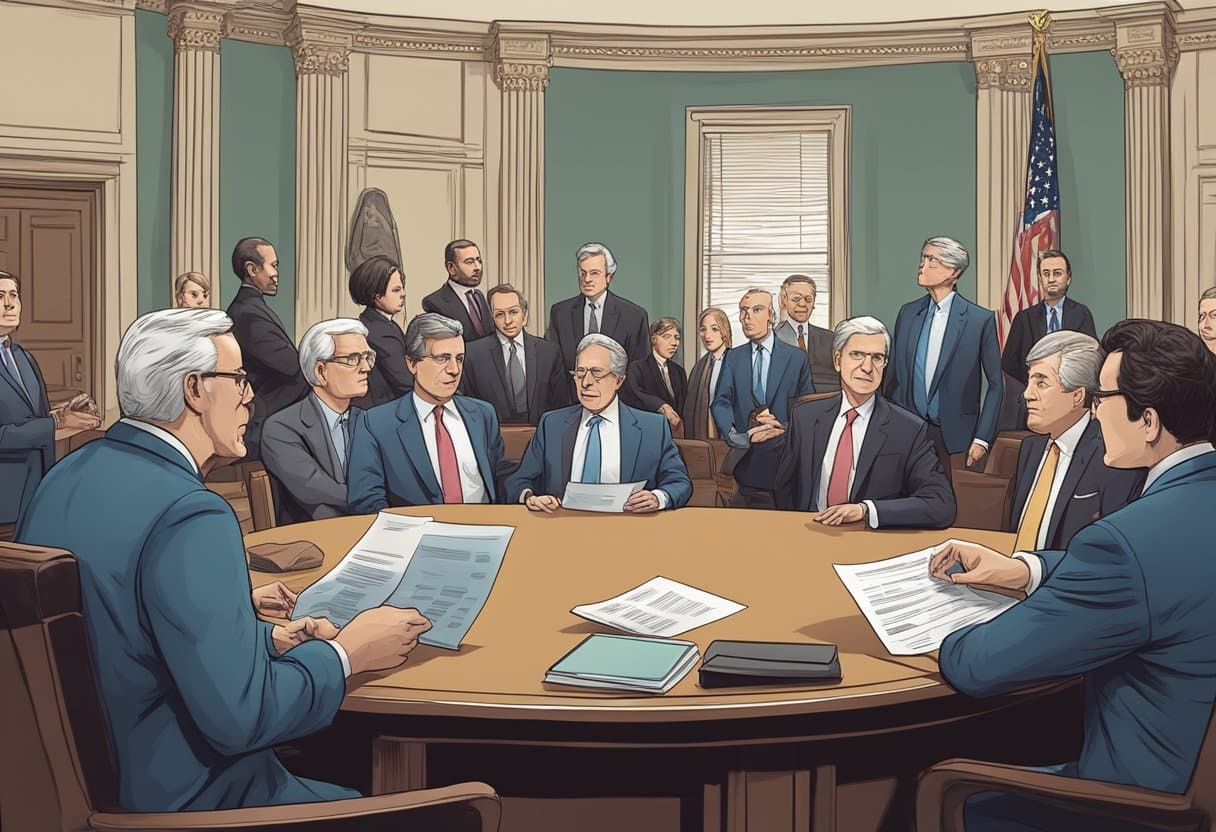
Senate Bill S5935 aims to prohibit online sweepstakes games in New York State while establishing penalties for violations and enforcement mechanisms. The legislation specifically targets operations that may be functioning in legally questionable spaces.
Key Objectives of the Bill
The bill introduced by Senator Joseph Addabbo focuses on eliminating online sweepstakes games that operate in legal gray areas. These games often claim to offer “no purchase necessary” options while still collecting revenue from players.
The legislation has several clear objectives:
- Block revenue derived from what the bill classifies as illegal markets
- Protect consumers from potentially predatory gaming operations
- Establish penalties for operators who violate the prohibition
- Prevent circumvention by explicitly including suppliers and associated companies
The bill responds to concerns that some sweepstakes operations may exploit loopholes in existing gambling laws. By targeting not just operators but also suppliers, the legislation aims to comprehensively address the issue.
Senate Bill Specifications
S5935 contains specific provisions outlining the scope and enforcement of the proposed ban:
- The bill would prohibit all online sweepstakes games regardless of how they structure their business model
- It provides clear guidelines for enforcement authorities to identify violations
- Penalties would apply to operators, technology providers, and other businesses supporting prohibited sweepstakes
The legislation stands in contrast to Senate Bill S2614, which would authorize regulated interactive gaming and lottery gaming in New York. This highlights the state’s approach of potentially allowing some forms of online gaming while cracking down on unregulated operations.
The bill has advanced through committee review, indicating support among lawmakers concerned with consumer protection issues.
Impact on Online Gaming and Sweepstakes
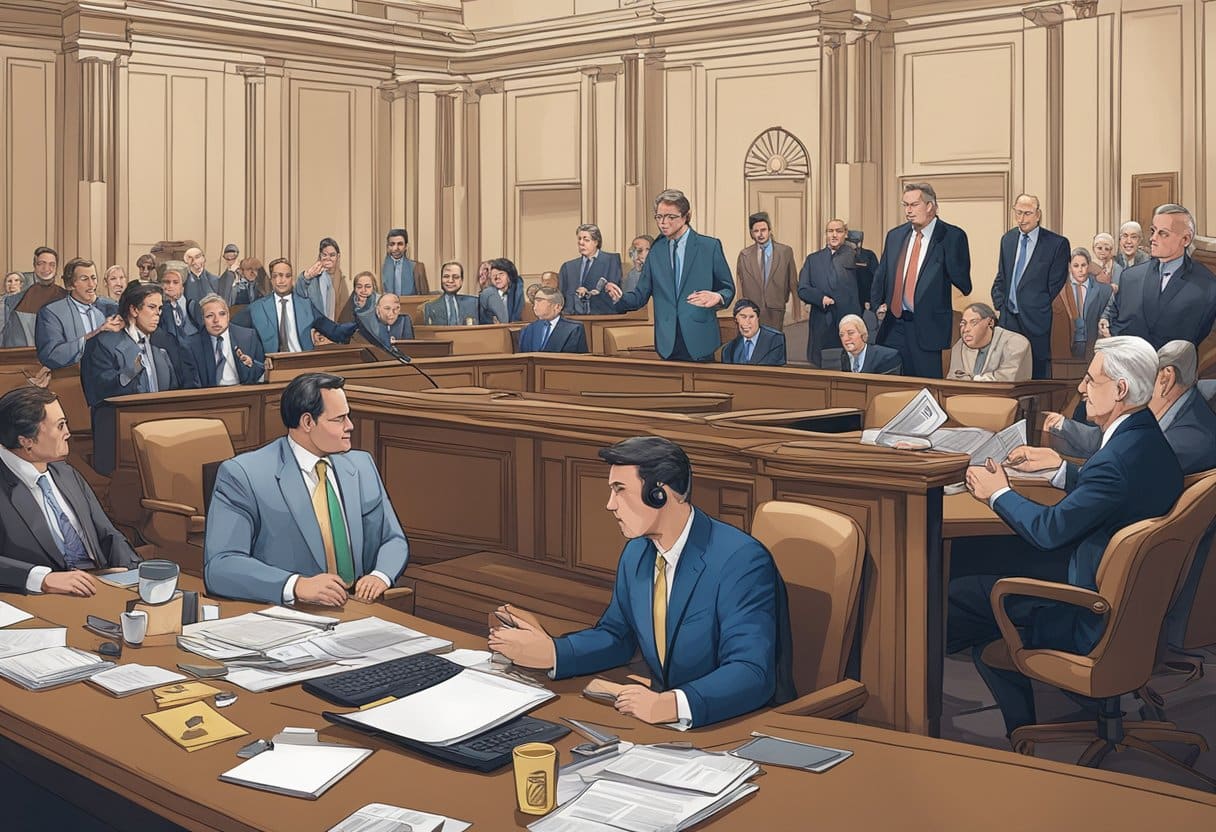
The proposed bill in New York targeting online sweepstakes would create significant changes for the gaming industry if passed. Both existing sweepstakes casinos and broader iGaming operations face potential disruption from this legislation.
Effects on Sweepstakes Casinos
Sweepstakes casinos would face the most immediate impact from this ban. The bill specifically targets platforms offering “online sweepstakes games” and seeks to prohibit them entirely from operating in New York.
Companies operating these sites could face severe penalties. According to the legislation, violators might receive fines ranging from $10,000 to $100,000 per offense. This creates a substantial financial risk for continuing operations.
Some industry representatives have pushed back against the bill. They argue it “recklessly mischaracterizes sweepstakes gaming and threatens legitimate businesses with unnecessary and harmful regulation.”
Many sweepstakes casinos currently operate in a legal gray area. This legislation would remove that ambiguity by explicitly banning their business model in New York.
Potential Consequences for iGaming Operations
The broader iGaming industry in New York may also feel ripple effects from this legislation. Licensed online casinos and gambling operations could benefit from reduced competition if sweepstakes sites are eliminated.
However, the bill also creates regulatory uncertainty. Companies with gaming licenses face a serious threat, as the legislation mentions potential “revocation of gaming licenses” for violations related to sweepstakes operations.
The bill aims to amend the “Racing, Pari-mutuel Wagering, and Breeding Law” to address online sweepstakes specifically. This suggests lawmakers are looking to strengthen the distinction between regulated internet gambling and what they view as illegal markets.
For the growing legal online casino sector in New York, clear boundaries between licensed operations and prohibited activities could help establish consumer trust and regulatory stability.
Senator Joseph Addabbo’s Role
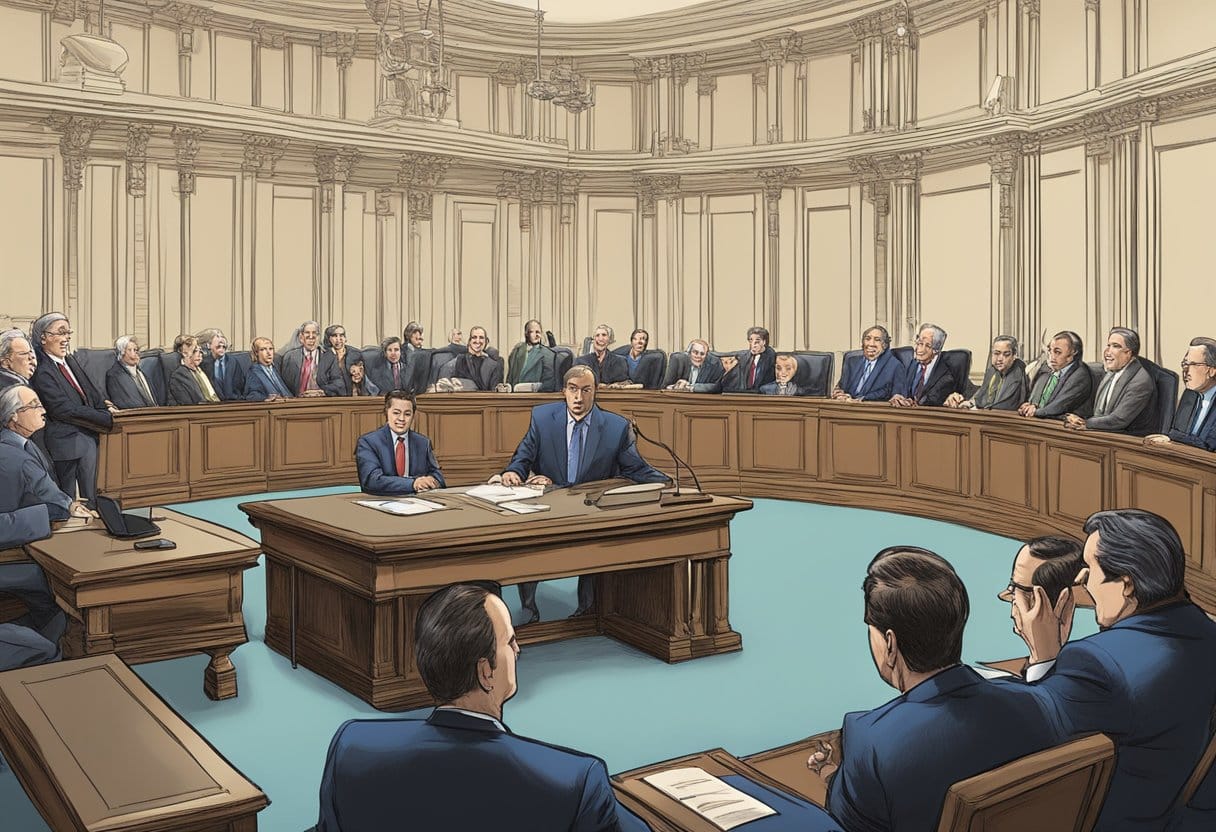
Senator Joseph Addabbo Jr. has emerged as a key figure in the effort to regulate online gaming in New York. As the chairman of the Senate Racing, Gaming and Wagering Committee, he has taken a strong stance against online sweepstakes casinos.
Addabbo introduced Senate Bill S5935, which specifically targets online sweepstakes gaming operations. The bill aims to prohibit these games and block revenue derived from what the legislation considers illegal gaming markets.
The Senator’s committee unanimously approved the bill, demonstrating significant support for his position. This marks an important step in the legislative process for the proposed ban.
Earlier this year, Addabbo expressed concerns about sweepstakes operators to Legal Sports Report, which preceded his introduction of this legislation. His proactive approach shows his commitment to addressing what he perceives as problematic gaming activities.
Under Addabbo’s proposal, individuals found guilty of supporting or facilitating online sweepstakes gaming could face strict penalties. This reflects the Senator’s serious approach to enforcement of gaming regulations.
The bill represents Addabbo’s ongoing efforts to shape New York’s gaming landscape and establish clear boundaries between legal and illegal gaming operations in the state.
Legal and Regulatory Context
New York’s approach to gambling regulation has evolved significantly over time, with strict limitations on what forms of gaming are permitted. The recent bill targeting online sweepstakes reflects the state’s ongoing efforts to clarify boundaries between legal gambling operations and potentially exploitative practices.
Current Gambling Laws in New York
New York maintains a comprehensive regulatory framework for gambling activities. The state permits several forms of legal gambling, including:
- State-sanctioned lottery
- Commercial casinos (authorized in 2013)
- Tribal casinos (operating under federal Indian Gaming Regulatory Act)
- Horse racing and pari-mutuel wagering
- Limited charitable gaming
Online sports betting became legal in 2022, representing a significant expansion of New York’s gambling market. However, the state has consistently taken a firm stance against unauthorized gambling operations.
Senate Bill 5935, proposed by Senator Joseph Addabbo, aims to explicitly prohibit online sweepstakes games and establish penalties for violations. The bill would close perceived loopholes that some operators have used to offer gambling-like experiences outside the regulated system.
Comparison with Other States’ Regulations
New York’s approach aligns with several states taking stronger regulatory positions on sweepstakes operations. Maryland and Connecticut have implemented similar restrictions on sweepstakes gaming that blurs the line between promotional activities and gambling.
By contrast, states like Nevada and New Jersey have created comprehensive regulatory frameworks that clearly define what constitutes legal online gambling. These states offer licensed options rather than outright prohibition.
Florida and Mississippi have had varying approaches, with Florida particularly active in pursuing enforcement actions against internet cafes and sweepstakes operations it deems illegal gambling.
New York’s proposed legislation represents one of the more direct legislative approaches to addressing sweepstakes gaming specifically, rather than relying solely on existing gambling laws and enforcement actions.
Enforcement and Compliance Measures
The proposed New York legislation includes specific provisions to ensure that the ban on online sweepstakes is effectively enforced. The bill outlines clear roles for internet service providers and establishes legal mechanisms to stop violations quickly.
Role of Internet Service Providers
Internet service providers (ISPs) would play a crucial role in enforcing the sweepstakes ban under the proposed legislation. The bill would require ISPs to block access to unauthorized sweepstakes platforms once properly notified by state authorities.
ISPs would need to implement technical measures to prevent New York residents from accessing these platforms. This approach mirrors enforcement mechanisms used for other forms of prohibited online gambling.
Companies failing to comply with these requirements could face penalties. The legislation recognizes that ISPs serve as gatekeepers to online content and leverages this position to strengthen enforcement efforts against illegal sweepstakes operations.
Mechanisms for Injunctive Relief
The bill provides robust options for injunctive relief to quickly shut down non-compliant operations. State authorities, including the Attorney General’s office, would have the power to seek court orders against operators violating the sweepstakes ban.
These injunctions could be issued rapidly to prevent ongoing violations. Courts would be authorized to freeze assets of illegal operators and order the immediate cessation of prohibited activities.
The legislation draws inspiration from interpretations of the Wire Act, which prohibits certain types of interstate gambling. This framework enables New York to take swift action against operators regardless of where they’re physically located.
Penalties for violations would include substantial fines and possible criminal charges for repeat or flagrant offenders.
Economic and Social Implications
The ban on online sweepstakes in New York carries significant financial consequences for both the state and workforce. These implications extend beyond immediate revenue impacts to affect public services and employment opportunities across multiple sectors.
Impacts on State Funding and Appropriations
New York’s potential ban on sweepstakes casinos would redirect gambling-related revenue streams. Traditional casinos and licensed gambling operators may see increased patronage, potentially boosting tax revenues from regulated sources.
State appropriations could shift toward enforcement mechanisms needed to police illegal gambling operations. This might require additional funding for regulatory bodies and law enforcement agencies tasked with oversight.
Some lawmakers argue the ban protects state lottery revenues, which fund education initiatives. Without competition from sweepstakes sites, lottery participation might increase, securing more consistent funding for schools.
The legislation could also reduce costs associated with problem gambling treatment programs if fewer residents have access to these gambling alternatives.
Public Service and Workforce Effects
The sweepstakes ban would directly impact employment in businesses currently operating these platforms. Workers at sweepstakes companies face potential job losses if operations become illegal.
Regulatory agencies will likely need additional staff to enforce new restrictions, creating public service positions focused on compliance and monitoring.
Labor law implications extend to contractors and third-party vendors who support sweepstakes operations through software development, marketing, and customer service.
The workforce diversity within the gaming sector may shift as employees transition between different segments of the industry. Traditional casinos might expand hiring to accommodate increased customer volume.
Small businesses that host sweepstakes terminals could experience revenue declines, potentially leading to staffing reductions or closures in communities where these establishments operate.
Legislative Process and Progression
The journey of New York’s bill to ban online sweepstakes games has followed a specific legislative pathway through state government. The legislation has moved through multiple steps in the Senate while also requiring parallel consideration in the Assembly.
Senate Committee Actions
On March 4, 2025, the New York Senate Racing, Gaming and Wagering Committee unanimously approved bill S5935. This crucial first step moved the sweepstakes ban measure to the Senate floor for broader consideration.
The bill prohibits online sweepstakes games and revenue from illegal markets while establishing penalties for violations. After committee approval, the bill received a rules report that placed it on the Senate’s A-calendar for upcoming floor debate.
Several senators expressed support during committee discussions, citing concerns about unregulated gaming platforms operating in legal gray areas. The committee highlighted how these platforms potentially circumvent existing gambling regulations in the state.
Movement through New York State Assembly
The Assembly’s parallel version of the sweepstakes ban legislation has followed a different timeline. Acting Speaker Aubry referred the bill to the Ways and Means Committee for fiscal impact assessment before floor consideration.
Assembly members have requested additional information about enforcement mechanisms and potential economic effects of the ban. The Ways and Means Committee scheduled hearings to gather testimony from industry representatives, regulators, and consumer protection advocates.
Unlike the Senate’s swift action, the Assembly process has involved more deliberation about implementation details. Committee members have raised questions about distinguishing legitimate promotional sweepstakes from targeted operations that function similarly to gambling platforms.
The bill requires passage in both chambers before heading to the governor’s desk for final approval or veto.
Broader Significance of the Bill
New York’s move to ban online sweepstakes represents a potential turning point in how states regulate gambling-adjacent activities. This legislation has implications that extend beyond state borders and raises fundamental questions about gambling regulation.
Implications for Federal Legislation and Funding
The New York sweepstakes ban could spark similar legislative efforts in other states. This growing state-level movement might eventually pressure Congress to establish clearer federal guidelines around online gaming activities.
Federal agencies may use New York’s approach as a model for their own enforcement priorities. The Justice Department, which has historically maintained a complex relationship with gambling enforcement, could find renewed focus for interstate cases.
States that follow New York’s lead might qualify for additional federal funding aimed at gambling addiction services. This creates a financial incentive for similar legislation elsewhere.
The bill also addresses interstate commerce concerns, as many sweepstakes operators function across multiple states. This raises questions about state authority versus federal oversight in the digital gambling space.
Philosophical Considerations Regarding Gambling
The legislation reflects an ongoing societal debate about the nature of gambling versus games of skill. This distinction has both legal and ethical dimensions that impact how activities are regulated.
Public integrity concerns feature prominently in the bill’s justification. Supporters argue that sweepstakes operations often lack transparency and consumer protections that licensed gambling provides.
The debate touches on fundamental American values about personal freedom versus social responsibility. Some view gambling restrictions as government overreach, while others see them as necessary safeguards.
Religious and moral perspectives also influence the discussion. Many communities view gambling through ethical lenses that shape their support or opposition to such legislation.
The bill forces consideration of what constitutes fair competition between traditional gambling operations and newer digital models.
Next Steps and Anticipated Outcomes
The bill to ban online sweepstakes in New York faces several procedural hurdles before potential implementation. The unanimous committee approval signals strong support, but additional legislative steps and regulatory frameworks will shape its final impact.
Potential for Amendments and Housekeeping
The bill will likely undergo further refinement as it moves to the Senate floor for a full vote. Lawmakers may introduce amendments to address concerns from various stakeholders. Some legislators might push for clarifications on enforcement mechanisms or modifications to penalty provisions.
Housekeeping measures will be necessary to align the proposed ban with existing gaming regulations in New York. This could include updates to regulatory definitions and coordination with the state’s Gaming Commission to ensure consistent implementation.
If passed by the Senate, the bill must still clear the Assembly before reaching the governor’s desk. This multi-step process provides opportunities for additional changes that might soften or strengthen certain provisions based on legislative negotiations.
Annual Reporting Requirements and Oversight
The proposed legislation is expected to include robust reporting mechanisms to track enforcement effectiveness. Annual reporting requirements will likely mandate that the Gaming Commission document violations, enforcement actions, and the overall impact of the ban.
These reports would provide crucial data for lawmakers to evaluate whether the ban achieves its intended goals. Regulatory findings would be presented to Senate oversight committees to determine if additional legislative action is needed in subsequent sessions.
The Gaming Commission would assume primary responsibility for monitoring compliance. This includes identifying operators attempting to circumvent the ban through technical or legal loopholes.
Funding allocations for enforcement efforts may be included in the final bill to ensure regulatory bodies have sufficient resources to implement the new restrictions effectively.
Technological and Ethical Considerations
The ban on online sweepstakes in New York raises important technological and ethical questions. These platforms often use sophisticated software to create gambling-like experiences while claiming to operate in legal gray areas.
Artificial Intelligence plays a significant role in these games. AI algorithms can personalize player experiences and potentially create addictive patterns of play, raising ethical concerns about user manipulation.
Consumer protection stands at the heart of the Senate bill. Many sweepstakes sites lack the rigorous oversight and player safeguards found in regulated gambling platforms.
Key Concerns:
- Lack of age verification systems
- Minimal addiction prevention tools
- Unclear odds and winning chances
- Poor data privacy protections
Internet gambling regulations typically require strict technological measures to prevent fraud and protect vulnerable users. Sweepstakes sites often bypass these requirements through technical loopholes.
The bill relates to broader discussions around technology governance in New York. Senate Bill S2487, mentioned in the search results, addresses artificial intelligence regulation, suggesting lawmakers are taking a comprehensive approach to emerging technologies.
Ethical questions also arise about the responsibility of technology suppliers. The proposed legislation would hold not just operators but also software providers accountable for enabling potentially harmful gaming activities.
The unanimous committee approval signals strong bipartisan agreement on the need to address technological loopholes that may enable unregulated gambling activities.
Political Dynamics and Party Perspectives
The bill to ban online sweepstakes in New York has created interesting alignments across political lines. Both major parties have found common ground on this issue, though their motivations and emphasis differ in key areas.
Democrat and Republican Views on the Legislation
Democrats in the New York Senate have largely framed the sweepstakes ban as a consumer protection measure. They emphasize that these games often target vulnerable populations with promises of rewards while operating in legal gray areas.
Republicans have rallied behind the bill by focusing on law and order aspects. They point to the need for proper regulation and taxation of gambling activities, similar to the framework established for sports betting in the state.
The unanimous committee approval demonstrates rare bipartisan consensus. Both parties agree that unregulated sweepstakes operations potentially undermine New York’s legal gambling framework and tax revenue systems.
Some lawmakers have drawn parallels to how the state handled sports betting regulation, suggesting similar oversight is needed for all gambling-like activities.
The Impact of Public Opinion and Advocacy
Public service organizations have been vocal supporters of the ban. They point to potential gambling addiction risks and lack of consumer protections in current sweepstakes operations.
Gaming industry stakeholders have divided opinions. Licensed casino operators and sports betting companies generally support the ban, viewing sweepstakes as unfair competition operating without proper oversight.
Consumer advocacy groups have pushed for either strict regulation or outright prohibition. They cite concerns about misleading marketing tactics that suggest players can win real money with little risk.
The New York justice system would be responsible for enforcement under the new law. Penalties for violations would apply to both operators and suppliers of sweepstakes games.
Local community leaders have also weighed in, with many supporting stronger regulations to protect residents from potentially predatory gaming practices.

